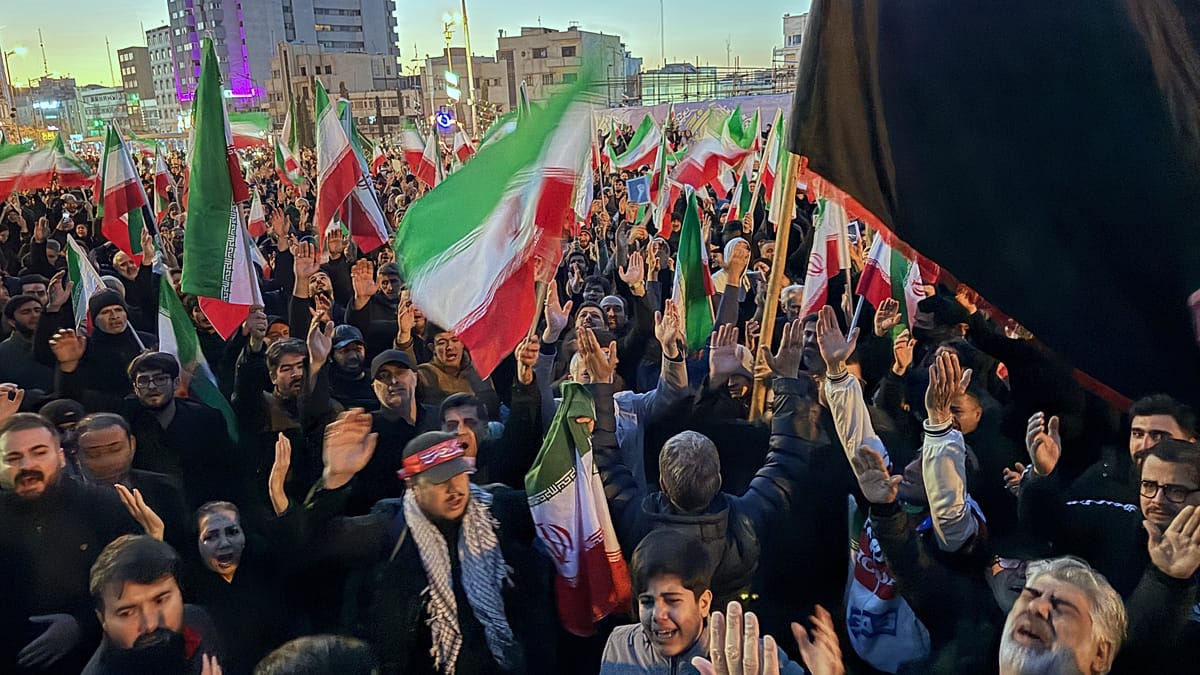How the Saudi Premium Residency Can Help You Expand Your Business In the GCC

The Gulf Cooperation Council (GCC) is one of the world’s most attractive regions for business growth and development. In 2024, the combined GDP of the six GCC nations reached approximately $2.3 trillion.
Saudi Arabia leads the pack with a GDP crossing $1 trillion for the first time and securing its position as the Arab world’s biggest market. This strong regional economy, backed by high consumer spending, offers wide-scale business opportunities.
That’s where the Saudi Premium Residency (SPR) comes in: a new long-term visa program that removes many of the traditional barriers for foreign investors and entrepreneurs looking to operate in the Kingdom.
Let’s find out what it is and how you can use it for your business’s expansion.
What is Saudi Premium Residency?
Saudi Premium Residency is a long-term residency system introduced in 2019 as part of the Kingdom’s Vision 2030 reforms. It was created to attract global talent, investors, and entrepreneurs by removing one of the biggest barriers in the Gulf—the need for a local sponsor.
Unlike a standard work visa, this residency allows foreign professionals to live in the country without being tied to an employer or a Saudi national. It represents a major shift from earlier rules and supports Saudi Arabia’s broader plan to diversify its economy.
Evolution of the Program
The system originally offered two options: a one-year renewable residency and a lifetime residency, both with significant fees. In early 2024, the program expanded into seven categories to address different professional and investment profiles.
These include tracks for highly accomplished individuals, in-demand professional talent, business investors, entrepreneurs, and real estate owners, along with the two original duration-based options.
The Saudi Market & GCC Context: Why It Matters
Saudi Arabia occupies a key location at the intersection of Asia, Africa, and Europe. Its geographical reach, paired with its economic strength, makes it a natural hub for companies targeting the wider Gulf.
As the largest economy and landmass in the GCC, the Kingdom acts as an anchor for firms planning broader regional expansion. Major national projects under Vision 2030, including megacities like NEOM, reflect a long-term push to diversify and attract global business activity.
Economic Scale and Market Demand
Saudi Arabia is the dominant economic force in the Gulf. It contributes nearly half of the GCC’s total GDP, which makes it the bloc’s main growth engine. This scale matters because the domestic market is large, diverse, and supported by a population of more than 35 million with strong purchasing power.
Companies that establish a presence in Saudi Arabia often gain access to partnerships and government-driven opportunities that extend across the region.
If the GCC were treated as one economy, it would rank around 9th in the world, with Saudi Arabia playing the central role. Recent data also shows steady non-oil sector growth across the GCC, and Saudi Arabia’s own private sector continues to expand at a fast pace.
This indicates that opportunities are not limited to oil and gas but spread across sectors such as technology, manufacturing, logistics, tourism, health, and consumer services.
Policy Changes Reinforcing Local Presence
Saudi Arabia has introduced reforms that make local establishments more important than ever. A key change took effect on January 1, 2024: government entities now limit contract awards to foreign companies with a regional headquarters inside the Kingdom.
This Regional Headquarters (RHQ) rule encourages firms to run their Gulf operations from Saudi Arabia rather than from neighboring hubs. By mid-2024, more than 400 RHQ licenses had been issued, drawing companies such as Amazon, Google, Microsoft, PepsiCo, and Unilever.
For any business seeking long-term Gulf opportunities, this shift signals that Saudi Arabia is positioning itself as the primary regional base. Companies that previously relied solely on other GCC locations may now need to adjust their strategy to stay competitive.
Saudi Arabia as a Launch Pad for GCC Expansion
A Saudi base does more than open access to the Kingdom’s domestic market. It strengthens a company’s reach across the entire Gulf. The country’s central location and extensive infrastructure investments make it an effective distribution and operations hub.
Roughly 13% of global maritime trade passes through the Red Sea near Saudi Arabia, and from the Kingdom, a company can reach 70% of the world’s population within an eight-hour flight.
Its proximity to other GCC markets, combined with regional frameworks such as the GCC customs union and common market, reduces friction for cross-border operations. Businesses with a Saudi presence also tend to gain more credibility in neighboring states, as clients and government bodies favor firms that show long-term commitment to the region.
With this foundation, the Saudi Premium Residency becomes a powerful tool. It offers foreign investors and entrepreneurs a stable, sponsor-free way to establish this presence and signal a serious commitment to the Saudi and GCC markets.
How Saudi Premium Residency Supports Business Expansion Across GCC
SPR is not just a residence status; it’s a tool strategically designed to empower foreign investors and entrepreneurs. Here are several specific ways it can facilitate your business expansion across GCC.
1. Ownership and Investment Freedom
Saudi Premium Residency removes one of the biggest historic barriers for foreign businesses in the Kingdom: the need for a local sponsor or partner. With SPR, you can form companies with full foreign ownership and operate without handing over equity to a Saudi stakeholder.
Holding a Saudi Premium Residency also allows you to own residential, commercial, and industrial property directly in your name. This includes offices, warehouses, and land that can support manufacturing or logistics operations. You can register intellectual property, sign contracts, and reinvest profits without restrictions, as Saudi Arabia permits free movement of capital for licensed foreign investors.
For companies planning to use Saudi Arabia as a distribution or production hub for the wider GCC, SPR makes this process far smoother. It helps streamline your supply chain, reduce operational costs, and maintain consistency with your global corporate standards.
2. Mobility and Talent Access
Business expansion across the Gulf requires more than legal permissions—you need mobility, stability, and access to talent. Premium Residency supports all three.
SPR provides long-term residency without the need for repeated work visa renewals. You are not tied to an employer or sponsor, which removes a major source of uncertainty. This makes it easier to manage operations across the GCC, as you can travel in and out of Saudi Arabia freely, without exit or re-entry permits.
Several GCC states also offer simplified entry for valid Saudi residents, which can reduce travel friction for meetings, client visits, or project oversight across the region. While SPR covers residency in Saudi Arabia, upcoming regional initiatives such as the GCC Visa may further support mobility. Once launched, you can explore all GCC countries under a single permit in the near future.
Talent mobility improves as well. SPR holders can sponsor their spouse, children, and parents, and key employees who hold SPR can do the same. Saudi Arabia also raised the dependent age limit to 25 for premium residency families, which makes relocation more appealing for senior professionals.
In addition, SPR holders can recruit staff directly. Your Saudi entity can bring in expatriate workers, hire local talent, or move experienced team members from other countries into Saudi roles.
Daily conveniences also support productivity. You can maintain a Saudi driver’s license, travel through resident lanes at airports, and operate without many of the bureaucratic steps that apply to traditional expatriate visas. Together, these benefits make Saudi Arabia a practical and livable base for executives and teams responsible for GCC-wide growth.
3. Regional Expansion
A credible regional headquarters can be the difference between winning and losing major contracts in the Gulf. Saudi Premium Residency helps you build that presence in the GCC’s largest market.
Many Gulf-wide projects, especially in energy, construction, logistics, and technology, are led by Saudi-based entities or require a Saudi-registered company to qualify. With SPR, you can establish a 100% foreign-owned Saudi entity, which enables you to meet local eligibility criteria for government procurement and B2B tenders.
Being based in Saudi Arabia also builds your business reputation across the GCC. When pitching to partners or clients in countries like the UAE, Kuwait, Qatar, or Bahrain, the ability to present yourself as a Saudi-licensed company signals long-term commitment and regional stability.
Operationally, Saudi Arabia’s location and infrastructure offer advantages for regional coordination. The Kingdom maintains the region’s largest maritime network and continues to expand its road and rail links. Companies can centralize warehousing, logistics, and management functions in Saudi Arabia to serve multiple Gulf markets more efficiently.
GCC-wide standards and customs frameworks add to this advantage. Products certified under GCC standards in Saudi Arabia can typically move across the region with fewer regulatory hurdles.
In short, SPR helps you build a strong operational and strategic base in Saudi Arabia, which strengthens your position across the entire Gulf.
Practical Steps for Using SPR to Expand Your Business
So how can you concretely use Saudi Premium Residency for your Gulf expansion? Here’s a step-by-step roadmap:
1. Identify the Right SPR Track for Your Business
Begin by matching the Premium Residency categories with your expansion goals. If your strategy involves deploying capital into Saudi projects or subsidiaries, the investor route may be suitable.
Entrepreneurs and startup founders may find the entrepreneur track more aligned with their needs. This category includes options based on funding raised from incubators or venture capital firms.
There are also routes created for highly skilled professionals and special talent, which can fit consultants, specialists, or executives establishing new service operations in the Kingdom.
2. Establish a Saudi Legal Entity
After selecting the appropriate SPR category, plan the setup of your Saudi business structure. Most foreign companies create either a limited liability company or a branch office.
Work with MISA to obtain the required foreign investment license and begin the commercial registration process. Additional sector-specific approvals may be needed depending on the industry. Saudi Arabia has streamlined many procedures through digital portals, which has reduced time and paperwork.
Even so, engaging a local law firm or corporate services provider can simplify licensing and early compliance. Once your entity is formed, you can sponsor employees, open bank accounts, secure premises, and bid for projects as a Saudi-registered company.
3. Use SPR to Build Your Team
With Premium Residency in place, you can relocate key personnel or hire new staff to support your regional plans. Moving a senior manager or director to Riyadh can help anchor your Middle East operations. Saudi Premium Residency allows dependents to join them, which makes relocation more appealing.
You should also begin hiring Saudi nationals and regional talent to build out your team. Over time, your company may need to meet certain local hiring ratios, so planning a balanced workforce from the start is advantageous.
4. Position Saudi Arabia as Your GCC Hub
Once your entity and team are in place, use Saudi Arabia as the central base for your Gulf operations. Centralizing marketing, customer service, warehousing, or logistics in the Kingdom can create efficiency because of its geographic location and strong transport links.
You can run region-wide marketing campaigns from Saudi Arabia or operate a warehouse that serves customers in nearby Gulf markets through the GCC customs union. The Kingdom’s location also makes it practical for executives to fly to other Gulf capitals quickly.
If your business involves research or training, Saudi Arabia’s incentives and facilities can support the creation of a regional center.
5. Build a GCC-Wide Network
While Saudi Arabia will act as the anchor, expanding across the GCC requires structured relationships in all six member states. Use your presence in the Kingdom to form partnerships, distribution deals, or joint ventures in the UAE, Kuwait, Qatar, Bahrain, and Oman.
Your Saudi base can reassure potential partners that your company is committed and well-resourced. Attend regional trade fairs and business events to meet potential clients and collaborators.
Over time, you can open small representative offices or work through local agents in each market. With a Saudi logistics or manufacturing hub, you can distribute products across the Gulf through established trade routes and customs frameworks.
6. Stay Aligned With Local Regulations Across the GCC
Each Gulf country has its own regulations, labor rules, taxes, and business culture. As you expand, monitor these differences and adjust your operations accordingly. Saudi Arabia’s VAT rate, labor rules in Oman or Qatar, and Emiratisation policies in the UAE all require compliance planning.
Keep track of GCC-level agreements that affect trade or market access and stay aware of political developments that may influence business activity. Your Saudi entity should also remain fully compliant with local laws, sector regulations, and Saudization requirements. Maintaining strong compliance protects your residency status and strengthens your reputation.
Take Your Business To New Heights With Saudi Premium Residency
Saudi Arabia’s Premium Residency program offers a practical pathway for individuals and businesses that want a long-term base in the Gulf. The program is already gaining traction. Thousands of investors and skilled professionals have applied for Premium Residency.
With the right category, a clear setup plan, and a long-term view, Premium Residency can anchor your operations in Saudi Arabia and help you reach customers and partners across all six GCC states.
The post How the Saudi Premium Residency Can Help You Expand Your Business In the GCC appeared first on Entrepreneurship Life.
























































